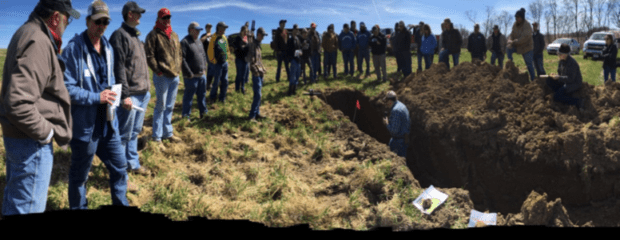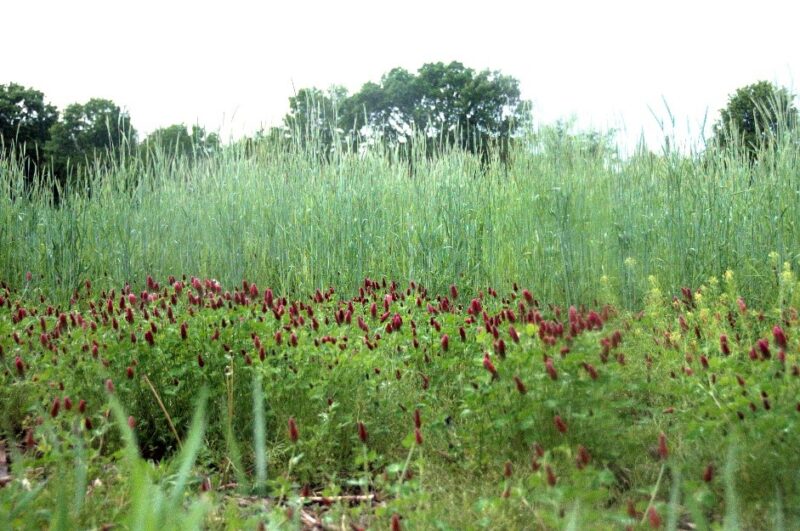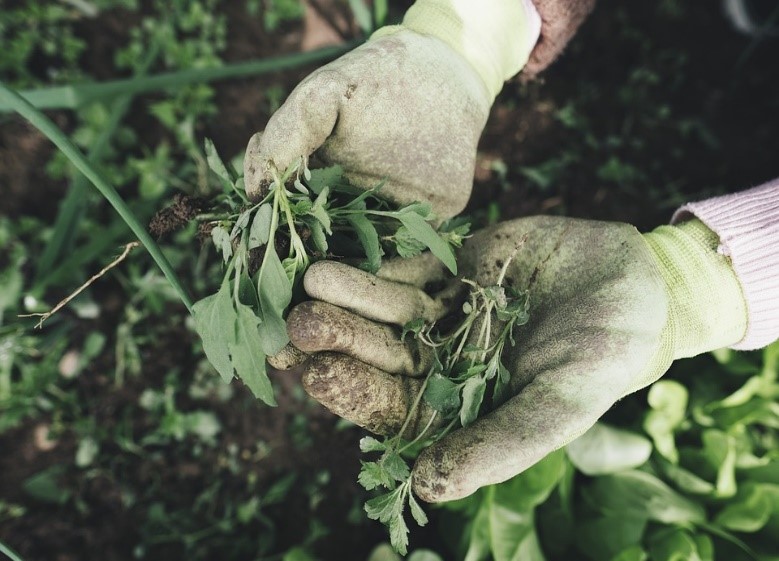Imagine driving around Iowa in December. You are driving by open corn and soybean fields. Some of them are brown and empty fields, but some are covered in green. However it is not corn or soybeans that are growing there, but cover crops. Cover crops are non-harvested plants that are planted in between growing seasons that have widespread soil benefits. Cover crops make a field beautiful.

Soil erosion, nutrient loss, soil compaction and weather changes are all factors that can affect any farm which directly contributes to the farm’s success and bottom line. Cover crops have direct impacts on all of these worrying factors. Benefits from cover crops include:
- Reduce soil erosion
- Improve fertilizer efficiency
- Increase water holding capacity
- Prevent and smother weeds
- Help control pests and diseases
- Increase soil biodiversity and wildlife
Despite the numerous benefits of cover crops and other soil health practices (rotational grazing, no till), the majority of farmers have yet to implement them. Practices that are easy to try and result in a quick increase in productivity or profit will experience fast adoption rates. However practices such as cover crops or no till may take more time to achieve evident changes.
One of the ways that farmers make decisions is from social cues. This makes farmers a key influencer of other farmers. A farmer that has successfully used cover crops on his own field makes for a perfect messenger. This concept lead to the formation of the Cover Crop Champion Program in 2013.

A Cover Crop Champion team consists of Farmer Champions and Outreach Champions. Farmer Champions are farmers that are experts in on-the-ground implementation of sustainable farming practices such as cover crops. Outreach Champions are agricultural professionals that work for a local non-profit or government organization.
Currently the program is located in the states of Illinois, Indiana, Iowa, Minnesota, Missouri, Ohio and Wisconsin with plans to expand to surrounding states in the coming years. Cover Crop Champion teams are responsible for creating an innovative outreach plan to increase the adoption of crop crops in their local areas.
Teams are responsible for reaching at least 150 farmers and 10 crop advisors. In addition to receiving a financial assistance for their outreach plan, NWF also assists with communication strategies and training. The champions partake in a comprehensive webinar and in person training program. This program helps the farmers with specific messaging to conventional farmers that have different motivations and reasons for not using cover crops.

The combination of NWF’s expertise in communication techniques coupled with local champions’ expertise and trusted status, establishes a comprehensive team that is best suited to change the minds and actions of conventional farmers across the country. If you or someone you know would like to be part of the 2018 Cover Crop Champion Class, please see further instructions and application here:




